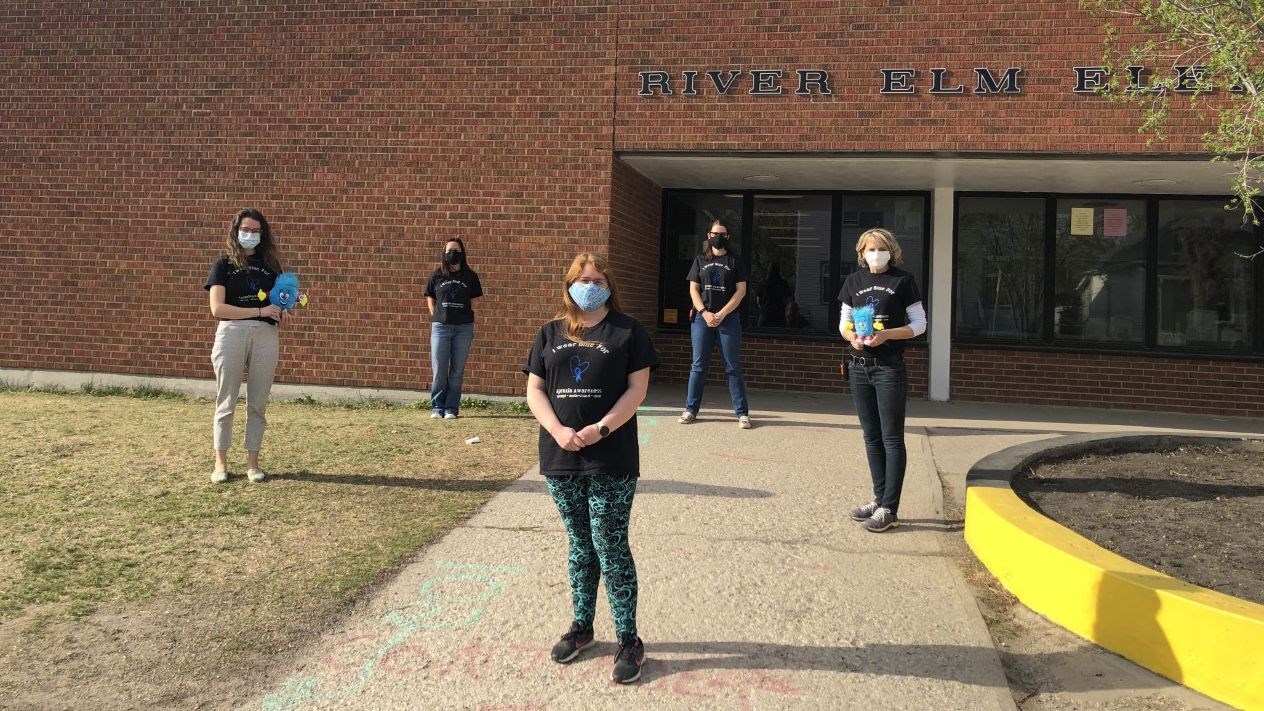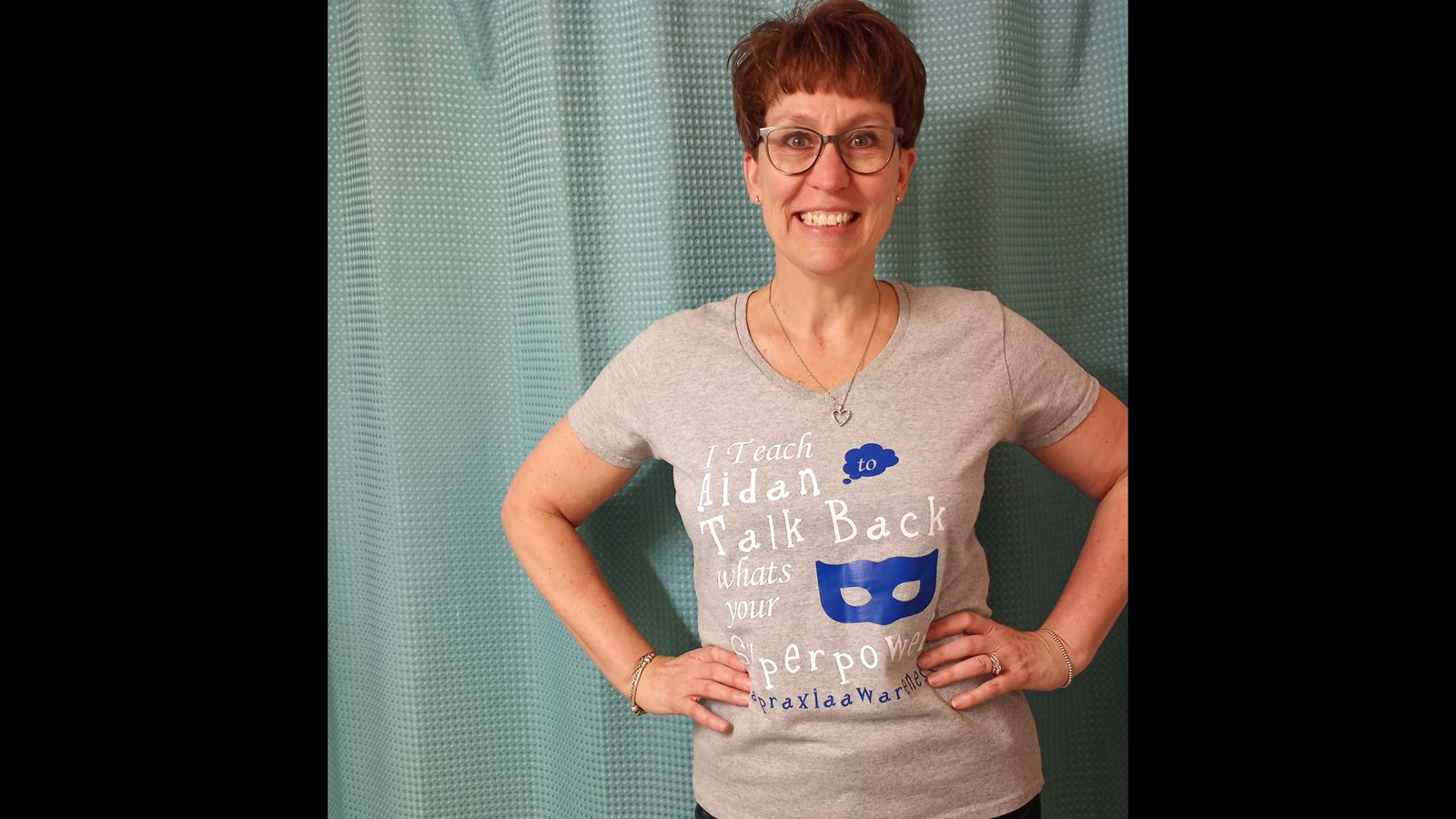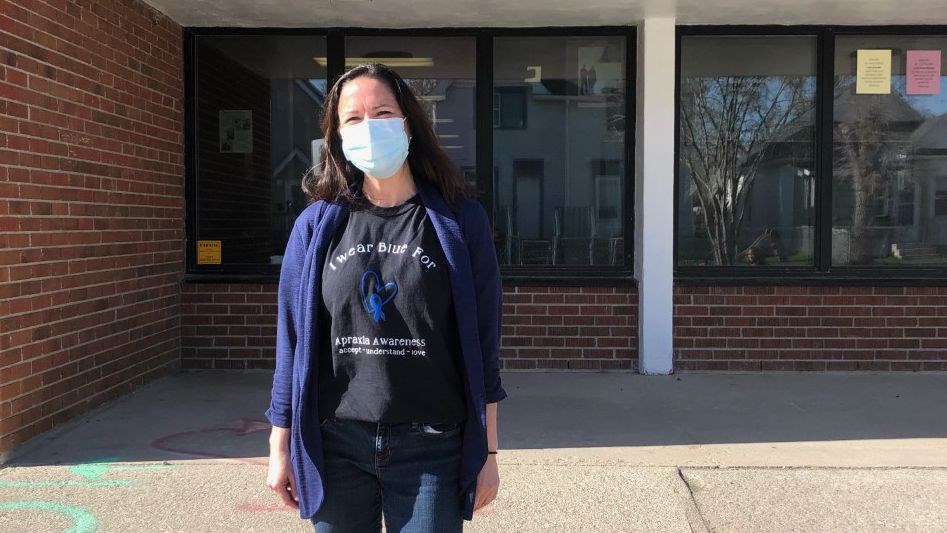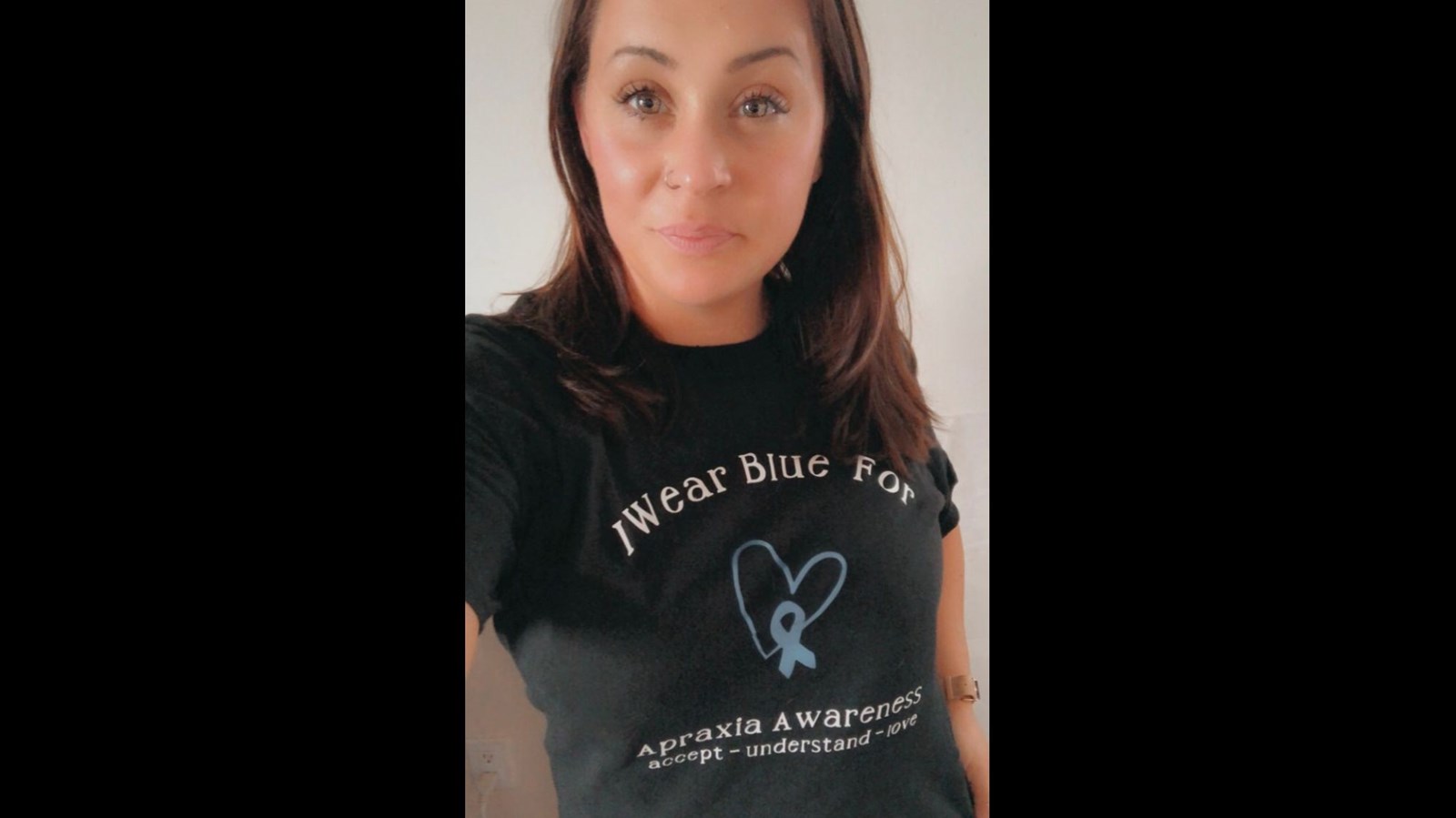River Elm communicates apraxia awareness
May 21, 2021 Community, News Story
River Elm School is spreading the word about a rare motor speech disorder that affects one of its students.
May 14 was Apraxia Awareness Day. River Elm students and staff wore blue in recognition of the day and also learned about Childhood Apraxia of Speech. CAS is an uncommon speech disorder in which a child has difficulty making accurate mouth movements when speaking.
Aidan, a Grade 4 student at River Elm, has CAS.
“It’s a disconnect between the brain and the muscles of the mouth,” said Nicole Beasse, Aidan’s mother. “The muscles in his mouth are fine, his brain is fine, but the connection between the two is misfiring."
Prior to the current remote learning period, WSD speech-language pathologist Kamila Strutinsky visited a few River Elm classrooms to teach students and staff about CAS. She also created an educational video so more students can learn about the speech disorder during remote learning.
“Some teachers might think a student with CAS doesn’t want to communicate with them, but the bottom line is that kids with apraxia know exactly what they want to say. It’s that ability to organize, plan and program those thoughts into words and sentences, that’s where it breaks down.”
To overcome that difficulty, Beasse said her son engages in frequent speech therapy at school, which is the only treatment for the speech disorder.
“With his apraxia of speech, he also has severe anxiety with it. He has not spoken in school since Kindergarten unless he’s been with his speech therapist,” Beasse said. “It’s been very tough, but now we’re dealing with his anxiety and his teachers are noticing.”
“He is starting to use a bit of a fuller voice with his speech therapist, because at home, he talks and yells at his brothers. The way he communicates with us, he says the letters as close as he can and he spells out the word. If he’s on a roll, we actually have to stop him and tell him to slow down because our brains can’t follow his letters fast enough.”
“But when he’s in speech therapy, he kind of clams up. But, that’s getting better. We hope his confidence will keep increasing so he can get to where he needs to be.”
Beasse said Darcy Ballard, a retired WSD educational assistant, has been very successful in keeping Aidan’s confidence up.
“She’s retired, but she became a volunteer so she could still work directly with Aidan,” Beasse said. “They do speech therapy twice a week over Skype. She’s been an amazing support to our son. We’re so grateful because there’s something special about those two together. They have a connection.”
Beasse said Aidan also communicates in alternative ways, whether it be with a speech-generating app on his iPad or with good old fashioned pen and paper.
“He’s an extremely intelligent child,” Beasse said. “That’s what really frustrates me. People think because he can’t speak that he’s not intelligent, but that’s the furthest thing from the truth. From the age of four he’s been writing to us.”
Beasse is working with River Elm on CAS awareness because she just wants her son to be understood.
“I’ve been really open with his classmates since he was in Grade 1,” Beasse said. “I think that’s part of the reason he’s always been so included. They know he’s not ignoring them, it’s that he can’t communicate with them the way he wants to.”
Accordingly, Aidan’s classmates are understanding of his speech disorder.
“I learned that there’s no cure,” said one Grade 4 student. “We show them love because it’s difficult for them to make friends and it’s important to be patient and kind.”
“I show love to people with apraxia,” said another Grade 4 student.
In addition to spreading CAS awareness in school, River Elm included Apraxia Awareness Day information in its latest school newsletter. Also, Beasse contacted the city and the Winnipeg sign at The Forks was lit up in blue on May 14.






